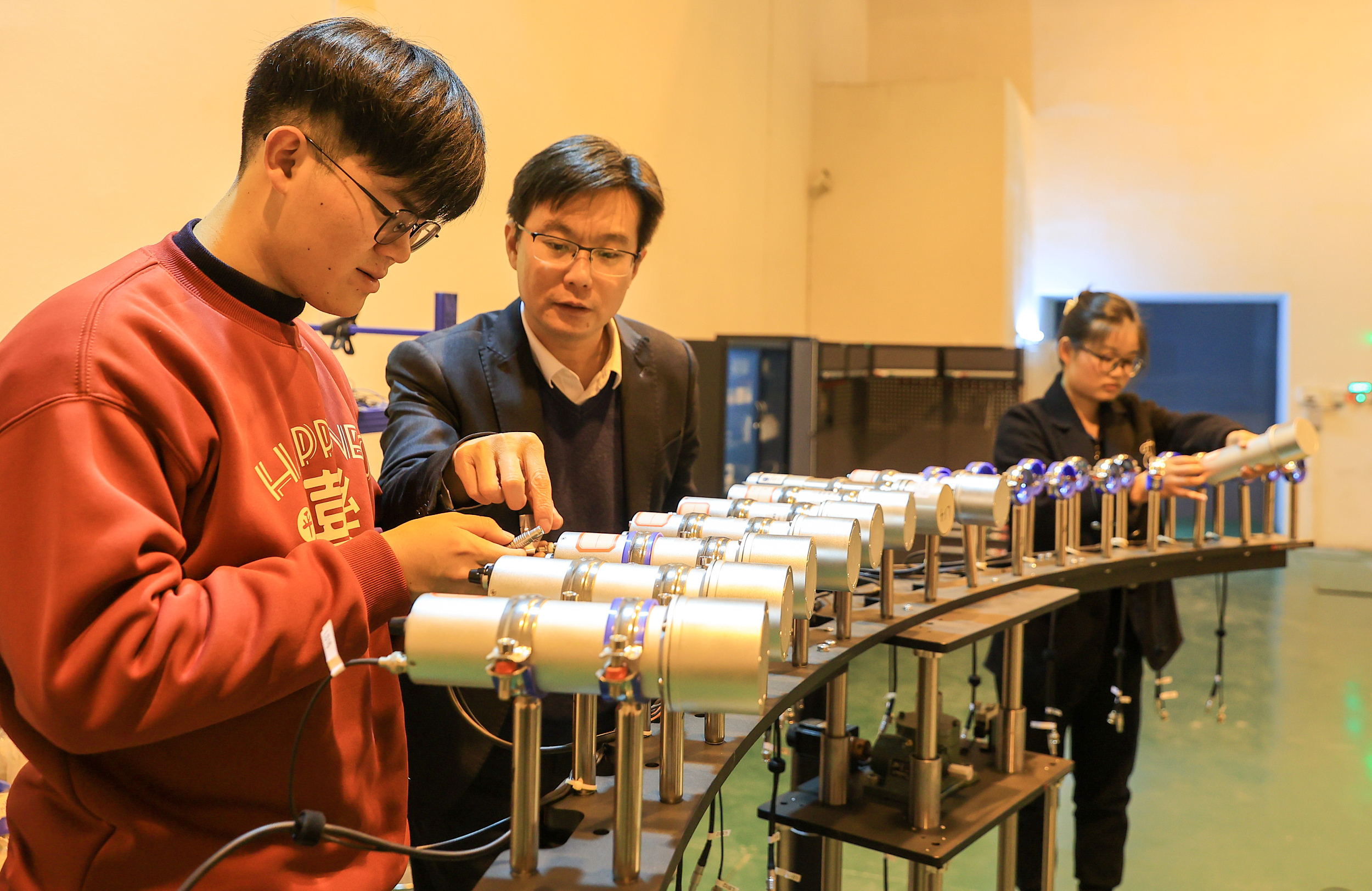Sci-tech Innovation Gets Tax Breaks

An expert instructs young researchers on assembling a detector array at the Ruichang Institute of Nuclear Physics Application in Jiangxi province. (PHOTO: VCG)
By?CHEN?Chunyou?&?LIU?Yin
Expenditures funded by enterprises for specific basic research are now allowed to be deducted at the rate of 100 percent before tax. In addition, the income generated from the commercialization of sci-tech achievements will enjoy tax incentives, including value-added tax (VAT) reduction and income tax reduction. That's according to a guideline, released recently by the Ministry of Science and Technology (MOST), State Taxation Administration, General Administration of Customs, and other related government departments.
These departments reviewed current major tax and fee policies that support sci-tech innovation, and compiled them into a handbook, aiming to provide a one-stop service for various innovative entities to inquire and understand the guideline, and allow them to enjoy the benefits of the tax and fee reduction policies, Hou Qionghua, a deputy director general at the MOST, told Science and Technology Daily.
In recent years, China has been increasing its tax and fee concessions in support of sci-tech innovation, among which the super-deduction of enterprise R&D expenses stands out as a crucial one.
According to Wei Shijie, a researcher at the Chinese Academy of Science and Technology for Development, the increase in the super-deduction rate for R&D expenses is vital to reducing corporate R&D costs. For profit-making enterprises, a higher super-deduction rate directly translates into a reduction in taxable income, significantly motivating them to increase R&D investment.
Meanwhile, China has also implemented tax incentives for corporate investment in basic research. Specifically, enterprises' contributions to non-profit scientific research institutions, universities, and government-funded natural science foundations for basic research are eligible for a 100 percent pre-tax super-deduction. Besides, institutions and universities are exempt from corporate income tax on income earned from basic research funding.
"This policy synergizes with the R&D expense super-deduction policy, exerting influence on both the funding side and the recipient side. It bridges the gap among enterprises, universities, and research institutions in carrying out basic research, fostering a virtuous cycle of mutual promotion among the trio," said Hou.
In addition, innovative entities can enjoy various preferential policies related to VAT, corporate income tax, and personal income tax during the transformation process, according to the guideline. There are also tax preferential policies specifically encouraging the transformation of research achievements of universities and scientific research institutions, including halving the individual income tax for cash rewards granted to researchers.






